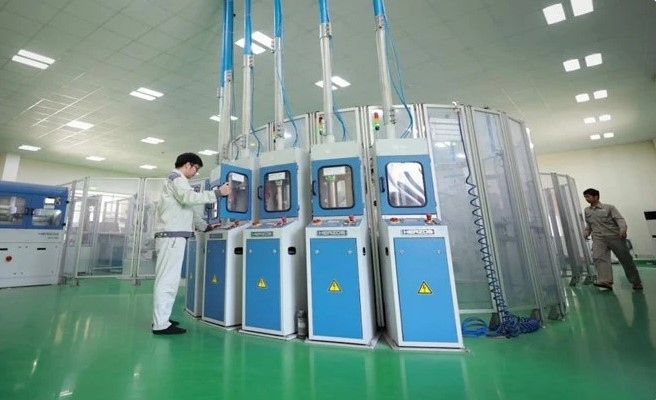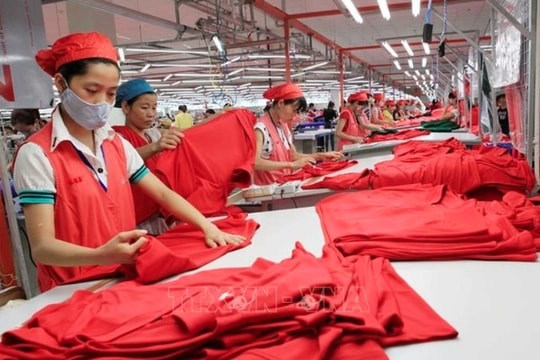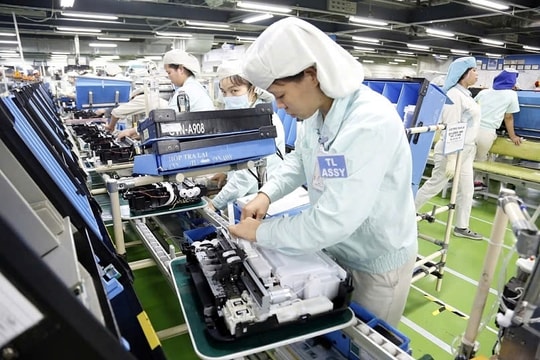The General Statistics Office said that the three drivers of the economy witnessed robust expansion during January-July.
Total foreign direct investment (FDI) in Vietnam during the seven-month span topped US$18 billion, a year-on-year increase of 10.9%. Foreign investors injected their capital into 48 cities and provinces nationwide, with Bac Ninh attracting the largest amount at nearly US$3.2 billion.
They poured US$10.76 billion into 1,816 new projects, rising 35.6% and 11.6%, respectively. Meanwhile, 734 projects had their capital adjusted up with a total amount of more than US$10.76 billion, down 0.3% in the project number, and up 19.4% in capital year-on-year. Capital contributions and share purchases fell 45.2% to US$2.27 billion.
Vietnam’s total foreign trade during the period neared US$440 billion, with export revenue estimated at US$226.98 billion, up 17% and 15.7%, respectively, against the same time last year
Vu Tuan Anh, an expert from the Junior Chamber International (JCI) Vietnam, said the country has nine exports with turnover of more than US$5 billion each, including electronics, computers and parts (over US$39.86 billion), phones and parts (over US$32.44 billion), and machines and spare parts (over US$27.65 billion).
He expected that vegetable exports could reach US$6.5-7 billion this year to join the club of commodities with export earnings of more than US$5 billion.
Regarding domestic consumption, total retail sales and services revenue in the first seven months of the year was estimated at more than VND3.62 trillion (US$143.55 million), rising 8.7% over the same time last year.
Based on the economic performance in the first half, the Central Institute for Economic Management presented two scenarios for the Vietnamese macro-economy for the rest of the year.
In the first scenario, the GDP growth is forecast at 6.55%, and export revenue to increase by 9.54% compared to 2023. The average consumer price index for the year is projected to rise by 4.32% year-on-year, and the trade balance is to maintain a surplus of US$5.7 billion. This is based on the assumption that world economic factors will remain consistent with the assessments of international organisations, and Vietnam maintains similar policy efforts as proposed in the first half of 2024.
Meanwhile, in the second one, the country’s economic growth will reach 6.95%, with export growth hitting 11.64%, CPI surging by 4.12%, and the trade surplus rising to US$7.3 billion. The scenario involves more positive global economic conditions, including faster recovery, increasing interest from investors in Southeast Asian countries, supply chain restoration, and positive changes in investments in digital transformation and green transition.
Nguyen Trong Hai from the Thuong Mai (Commerce) University held that as the main pillars of the economy - investment, export, and consumption - will maintain their growth, helping Vietnam realise its set economic targets.
Many enterprises have received orders till the end of Q3, which means export will continue thriving for the rest of the year, he added.
Chief Economist at ADB in Vietnam Nguyen Ba Hung said that the Government needs to continue improving its investment and business environments while stimulating domestic consumption, including private and Government consumption and public investment.
An expansionary fiscal policy is necessary to carry out public spending in a more effective manner, he suggested, adding accelerating the disbursement of public investment will create more jobs and help lure private investment.























